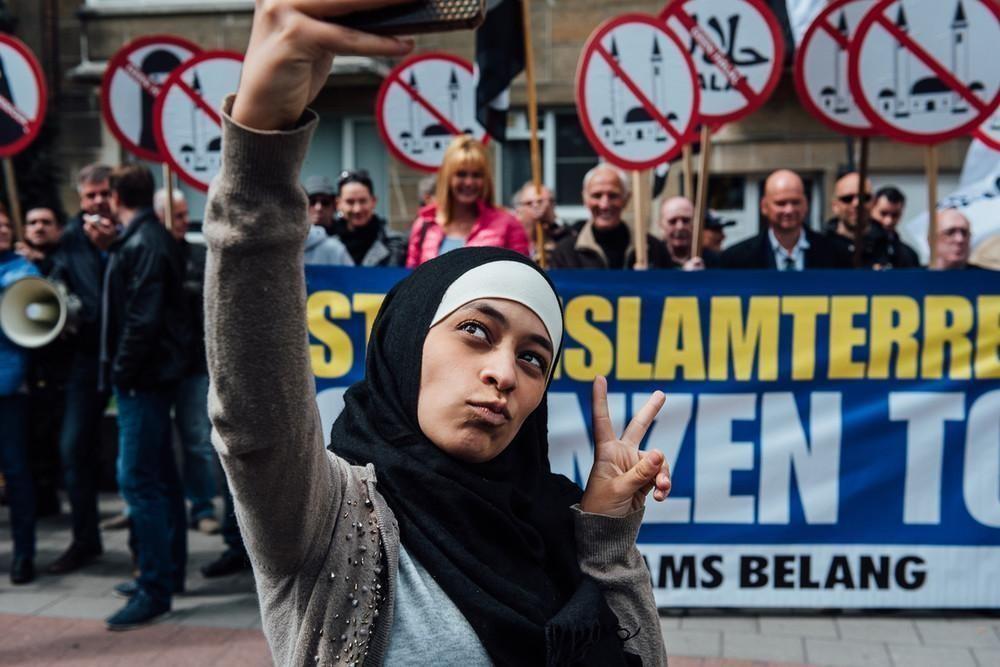Dear Princess ‘Ishka,
The hijab is the veil typically worn by women belonging to the Islamic culture. There are many ways of understanding it: for some people it is just an item of clothing, for others it has a deep religious meaning. For certain women it is an obnoxious imposition, for others it represents the free vindication of Islamic identity in islamophobic contexts.
In this letter I would like to address the feminist interpretation of hijab. The position I am going to defend is that the hijab can’t be considered a feminist symbol with respect to the western conception of feminism. This doesn’t mean that feminism and hijab-culture are incompatible. I think indeed that quite the contrary is the case. Still, I believe that people interpreting the role of hijab as quintessentially feminist are mistaken, and I’ll try to show why.
Attending a course on cultural anthropology some years ago, I learned about the following phenomenon: certain women belonging to the Islamic culture intentionally wear hijab as a symbol of emancipation. The reason why they do so, is that they don’t want to be seen by men as sexual objects, but rather want to be valued for their intelligence, personality and willpower. In this sense, hijab assumes the meaning of “protection” against the lustful gazes of men.
Although I strongly appreciate the efforts of these women to tackle their chauvinist societies, and I believe that individual choices are best seen by individuals in their practical contexts rather than by outside observers, I think that this meaning, theoretically understood, can’t be straightforwardly called feminist.
The reason is that feminism attempts to become a general theory of society and not a code of advices about how women should best behave. Feminism tries to talk to and about everyone: from children to adults, from women to men. This means that, even if hijab can work as a practical help in certain circumstances, and a symbol of female emancipation, it is far from being straightforwardly feminist. Feminism would require men to stop objectifying women in the first place, so that women are free to wear hijab at their will, and not because otherwise they would be objectified. To put it differently, feminist theory can’t come to terms with chauvinist blackmailing.
Another reason not to accept this meaning of hijab as feminist is the central role of the human body in western feminism. Women have fought under the motto “my body, my choice”, which is a vindication of the woman to be the ultimate judge about how she administers her body. In the above mentioned case, women are covering their bodies not because of a positive conception of it, but as a response to the objectification of men. They strive to be considered as thinkers, but in this struggle they set aside that they are also sensitive beings, sexual beings and material beings. Again: their efforts might be even necessary, given their conditions, but their sensible practical decisions can’t be theoretically understood as straightforwardly feminist.
Another example of the attempt to link hijab to feminism is less demanding. Certain women defend the claim that wearing hijab symbolizes the feminist freedom of women to wear what they want – especially in western societies. But from this claim they usually go as far as concluding that hijab (and their conception of Islam) is feminist. In my opinion, this is a confusion about a priority of meanings: the fact that feminism allows you to wear what you want, doesn’t yet entail that what you want to wear has a feminist meaning. A hijab remains often related to the Islamic culture, and all that feminism does is letting women intentionally adhere to it. From a feminist perspective, feminism must be prior to the meanings of hijab, otherwise we risk to say that, for instance, religious codes of behavior are feminist, which would be utterly ridiculous.
Western, modern feminism is compatible with Islamic culture insofar as it stands for the emancipation and empowerment of women of every culture. On the other hand, it clashes with Islamic and other cultures, whenever they oppress women and force on them their symbols of oppression. These symbols can be reinterpreted and can even be helpful in constituting one’s personal identity at different levels and with different meanings. But to forget that feminism is the condition for this to happen rather than religion or something else, is to step away from feminism and to take a step closer to connivance with the status quo of a world still extensively ruled by men.
Forever yours,
‘Miasha

